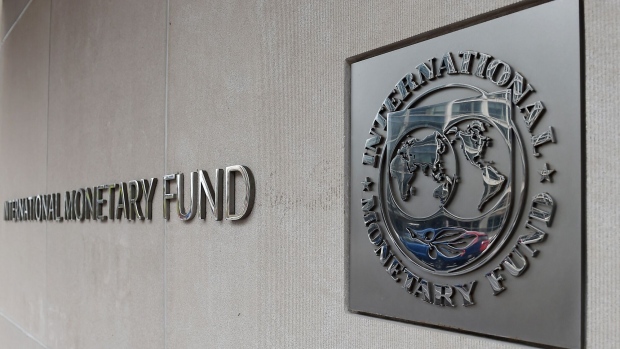Mar 27, 2023
IMF Team Initiates Talks on New Funding Program For War-Wracked Ethiopia
, Bloomberg News

(Bloomberg) -- International Monetary Fund officials are visiting Ethiopia for talks on a new support program as the country emerges from two years of civil war that hammered the economy.
A mission team is “on the ground doing technical work to prepare for a potential IMF-supported program,” the Washington-based lender said Monday in response to emailed questions. The Horn of African nation requested financial assistance from the IMF, it said.
Ethiopia needs to pay for post-conflict reconstruction and bolster its depleted foreign-currency reserves to pay for imports of medicine, food and raw materials for its manufacturing industry.
War between the federal government and dissidents from the northern Tigray region broke out in November 2020, and claimed hundreds of thousands of lives before the African Union brokered a peace accord late last year. The conflict cost Ethiopia its reputation as one of Africa’s hottest investment destinations and saw the World Bank and the IMF withhold funding in 2021 after reports of human-rights abuses in Tigray.
Read more: The Two-Year Conflict That’s Torn Ethiopia Apart: QuickTake
The Ethiopian government has said it needs $20 billion for post-war reconstruction. The peace accord appears to be holding, with parliament this month removing the Tigray People’s Liberation Front, which ruled Tigray, from a list of designated terrorist organizations.
“A potential program would support the authorities’ Homegrown Economic Reform program and help Ethiopia stabilize its economy so that it can meet its economic, humanitarian and social challenges, create jobs, and reduce poverty,” the IMF said.
The IMF’s presence in the country and its apparent willingness to consider providing renewed support is a glimmer of hope for a government that’s contending with surging inflation and a crippling drought, and is seeking debt relief under the Group of 20’s Common Framework. The nation’s eurobonds have rallied since the cease-fire was signed on Nov. 2.
While the US has given more than $3 billion to Ethiopia since 2020 to counter the effects of the drought and address other challenges, legal hurdles still need to be overcome for it to provide bilateral development assistance through the World Bank and IMF. Those include making a determination that gross human-rights violations aren’t being systematically committed within the country, according to a senior US official.
“We continue to monitor the situation closely, together with international partners, and will make adjustments as warranted,” the State Department said in an emailed response to questions. “We continue to press for action in areas such as unhindered access for international human rights monitors.”
Read more: S&P Sees Ethiopia IMF Deal in Reach, Paving Way for Debt Relief
--With assistance from Samuel Gebre.
(Updates with IMF, State Department comments from second paragraph)
©2023 Bloomberg L.P.






